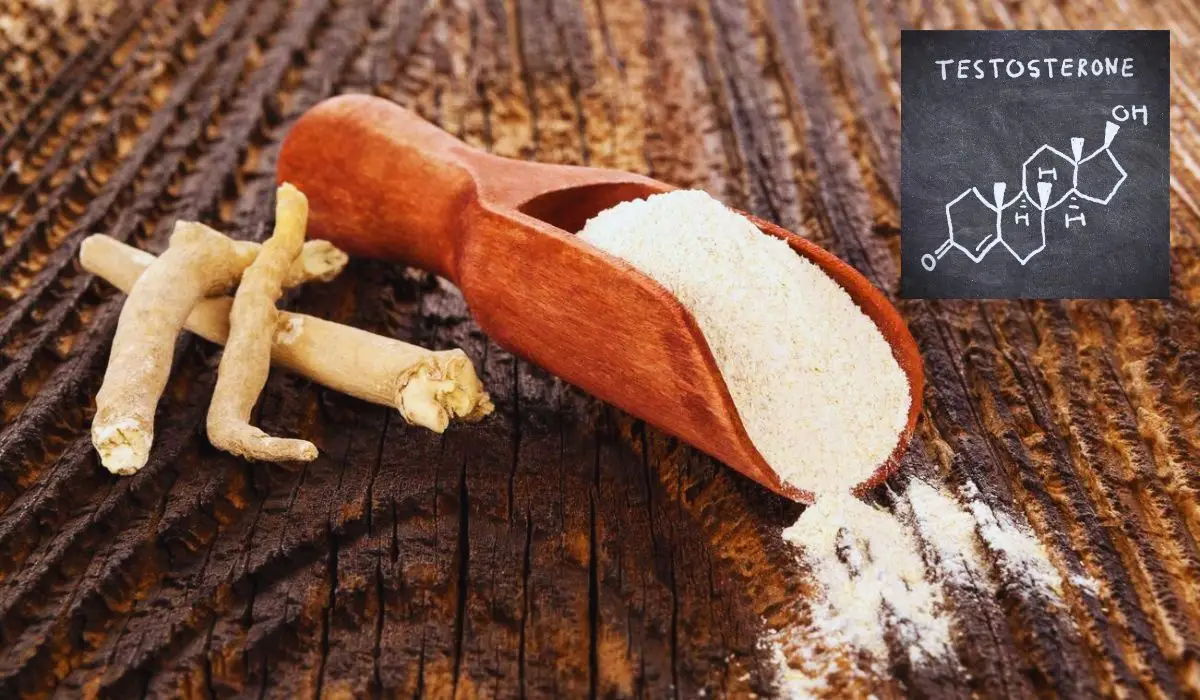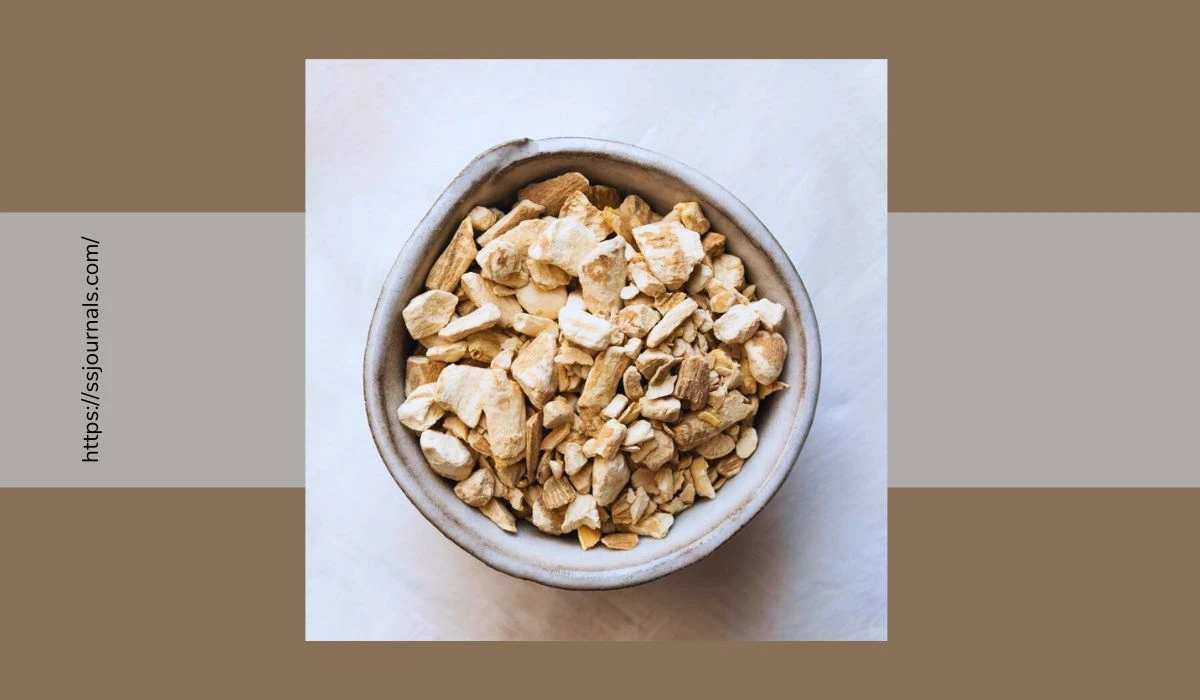Ashwagandha (Withania Somnifera) is an herb that has been used in Ayurvedic medicine for centuries. Recently, it has gained popularity as a supplement to boost testosterone levels in men. But does ashwagandha actually increase testosterone levels?
In this article, we’ll explore the science behind ashwagandha and testosterone, the best ways to take ashwagandha to boost testosterone, and potential side effects, and provide a final verdict on whether ashwagandha really does increase testosterone.
The Science Behind Ashwagandha And Testosterone

Several studies have investigated the effects of ashwagandha on testosterone levels in men. The proposed mechanisms behind ashwagandha’s testosterone-boosting effects include:
- Reducing cortisol levels: Cortisol is a hormone released in response to stress that can suppress testosterone production. Ashwagandha has been shown to reduce cortisol levels, which may relieve this suppression of testosterone production.
- Increasing antioxidant levels: Ashwagandha is rich in antioxidants that may support healthy testosterone production by reducing oxidative stress.
- Improving cholesterol levels: High cholesterol can negatively impact testosterone. Ashwagandha may improve cholesterol markers like triglycerides and LDL cholesterol.
- Increasing testicular weight: Some rodent studies reveal ashwagandha supplements increase testicular weight and sperm production, indicating a boost in testosterone synthesis.
Several human trials support these mechanisms. In a study of 75 infertile men, ashwagandha supplementation significantly increased testosterone levels and improved sperm parameters after 3 months. Another study of 57 young male subjects found that ashwagandha increased testosterone levels, muscle mass, and strength after 8 weeks.
Best Ways To Take Ashwagandha For Increasing Testosterone
If you want to try taking ashwagandha to increase your testosterone levels, here are some best practices:
- Dosage: Studies showing the benefits of testosterone have used daily dosages of around 300-500 mg of standardized ashwagandha extract.
- With meals: Take ashwagandha with meals for optimal absorption. Fatty foods may enhance the absorption of the active ingredients.
- Cycles: Consider cycling ashwagandha, taking it for 8-12 weeks at a time with 1-2 weeks off. This may help prevent building tolerance to its effects.
- Stack with other T-boosters: Taking ashwagandha alongside zinc, vitamin D, DHEA, or tongkat ali may provide greater testosterone benefits.
- Lifestyle factors: Ashwagandha may work best when combined with strength training, proper sleep, and a healthy diet. Manage stress as well.
Side Effects Of Taking Ashwagandha
At moderate doses, ashwagandha is very well tolerated by most people. However, there are some potential side effects to be aware of:
- Stomach upset: Ashwagandha may cause mild gastrointestinal distress like nausea or diarrhea when first starting out. Take it with food to minimize this.
- Drowsiness: Ashwagandha has a calming effect and may cause drowsiness or mild fatigue, especially at higher doses. Avoid taking it before operating heavy machinery.
- Hypothyroidism: Ashwagandha could worsen thyroid conditions like hypothyroidism by increasing thyroid hormone levels. Those with thyroid problems should consult a doctor before using it.
- Pregnancy: Ashwagandha is not recommended during pregnancy as it may affect hormone levels.
- Surgery: Stop taking ashwagandha at least 2 weeks before any scheduled surgery since it may interact with anesthesia.
Overall ashwagandha has an excellent safety profile, especially when taken short-term at moderate dosages of 300-500 mg per day. Those with medical conditions or on medication should consult their doctor before taking ashwagandha.
Conclusion
Based on several human clinical studies, there is evidence that taking ashwagandha supplements can boost testosterone levels in men. The ideal dosage is around 300-500 mg per day of a standardized extract like KSM-66 or Sensoril.
Ashwagandha appears most effective when combined with strength training, proper sleep, nutrition, and stress management. While generally well tolerated, potential side effects like stomach upset should be monitored.
As with any herbal supplement, consult your healthcare provider before taking ashwagandha, especially if you have any medical conditions or take medications. While more research is still needed, ashwagandha remains one of the more promising natural methods to support healthy testosterone levels.
FAQ
A: Studies have shown increases in testosterone levels after around 2-3 months of consistent ashwagandha supplementation. Maximum benefits seem to occur around 3 months.
A: The best time to take ashwagandha is usually with breakfast or lunch. Taking it earlier in the day may help prevent any drowsiness or sleepiness in the evenings.
A: DHT (dihydrotestosterone) is a byproduct of testosterone. Limited research shows ashwagandha may slightly increase DHT levels alongside increases in testosterone. However, it does not appear to cause issues with hair loss or prostate enlargement.
A: Ashwagandha is not recommended for women looking to increase testosterone, since women need much lower testosterone levels than men. Ashwagandha can benefit women in other ways, like reducing stress and cortisol levels.
A: For most healthy adults, taking ashwagandha daily is safe when following dosage guidelines. However, it’s a good idea to take breaks every few months to prevent building a tolerance. As with any supplement, consult your doctor before long-term daily use.

